1. FAANG Revenue Growth

Source: Otavio Costa at Crescat Capital
https://twitter.com/search?q=crescat%20capital&src=typed_query
2. Investment Grade Bond ETF
Not much changing….still well below 200 week moving average

3. U.S. Treasury Cash Situation
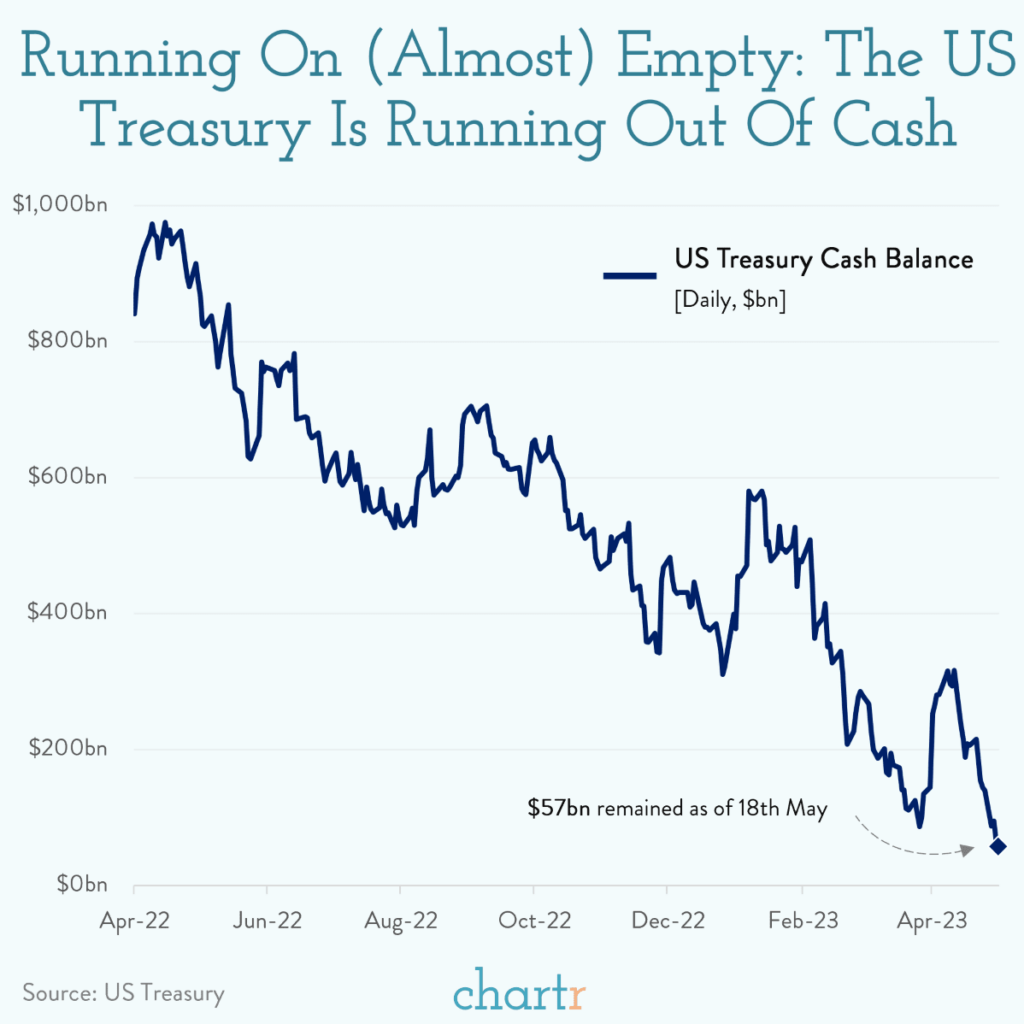
4. Private Equity and Private Secondaries 20 Year Growth
From Irrelevant Investor Blog

https://theirrelevantinvestor.com
5. Private Credit $500B to $1.3T

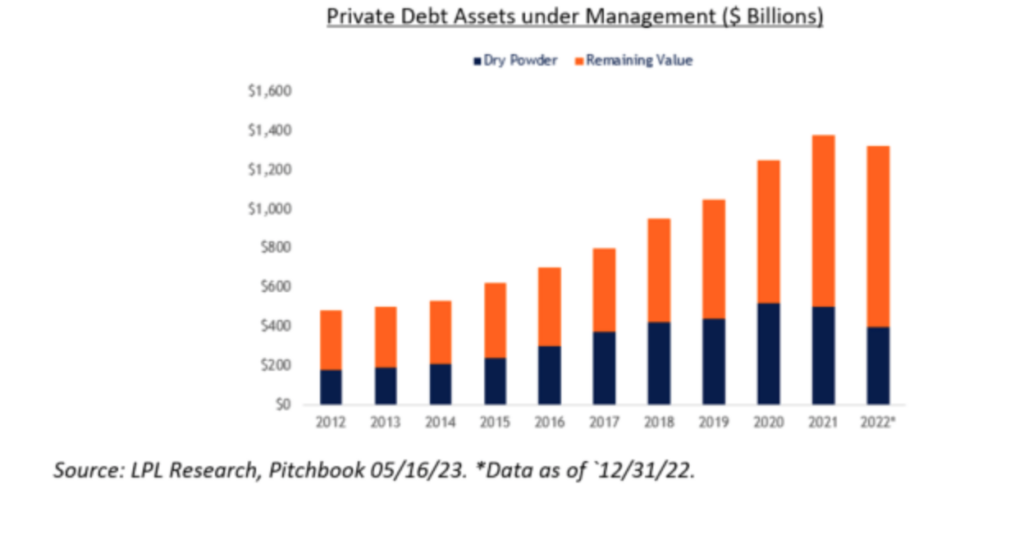
https://lplresearch.com/2023/05/17/private-credit-the-once-niche-market-that-has-become-mainstream/
6. Financial Stocks Bought and Sold by Hedge Funds in Q1
LPL Research
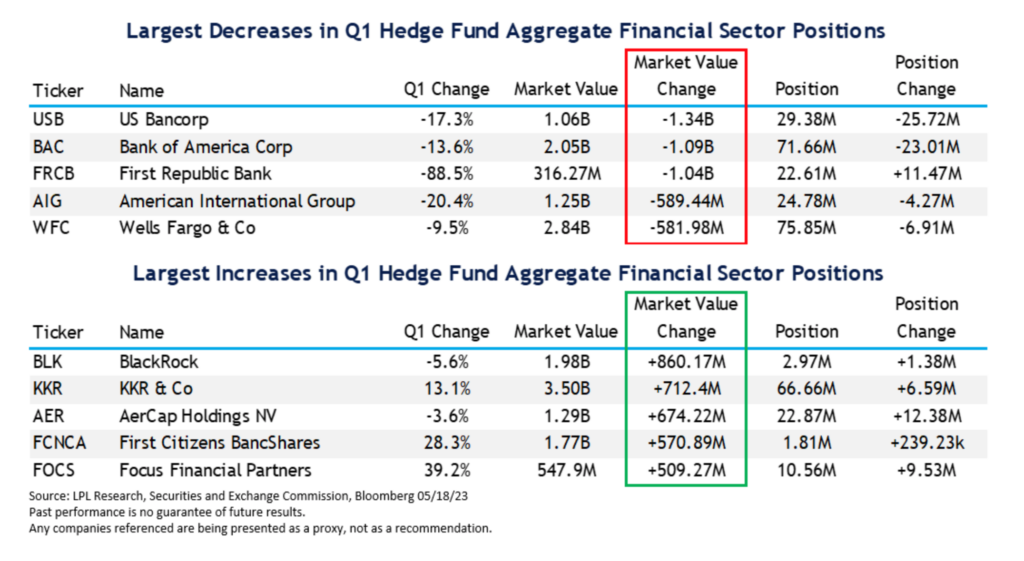
https://lplresearch.com/2023/05/19/follow-the-money/
7. China Local Government Debt is $23 Trillion.
Bloomberg Goldman Sachs Group Inc. estimates China’s total government debt is about $23 trillion, a figure that includes the hidden borrowing of thousands of financing companies set up by provinces and cities.
While the chance of a municipal default in China is relatively low given Beijing’s implicit guarantee on the debt, the bigger worry is that local governments will have to make painful spending cuts or divert money away from growth-boosting projects to continue repaying their debt. At stake for Xi is his ambition of doubling income levels by 2035 while reducing the gap between rich and poor, which is key for social stability as he seeks to rule the Communist Party for potentially the next decade or more.
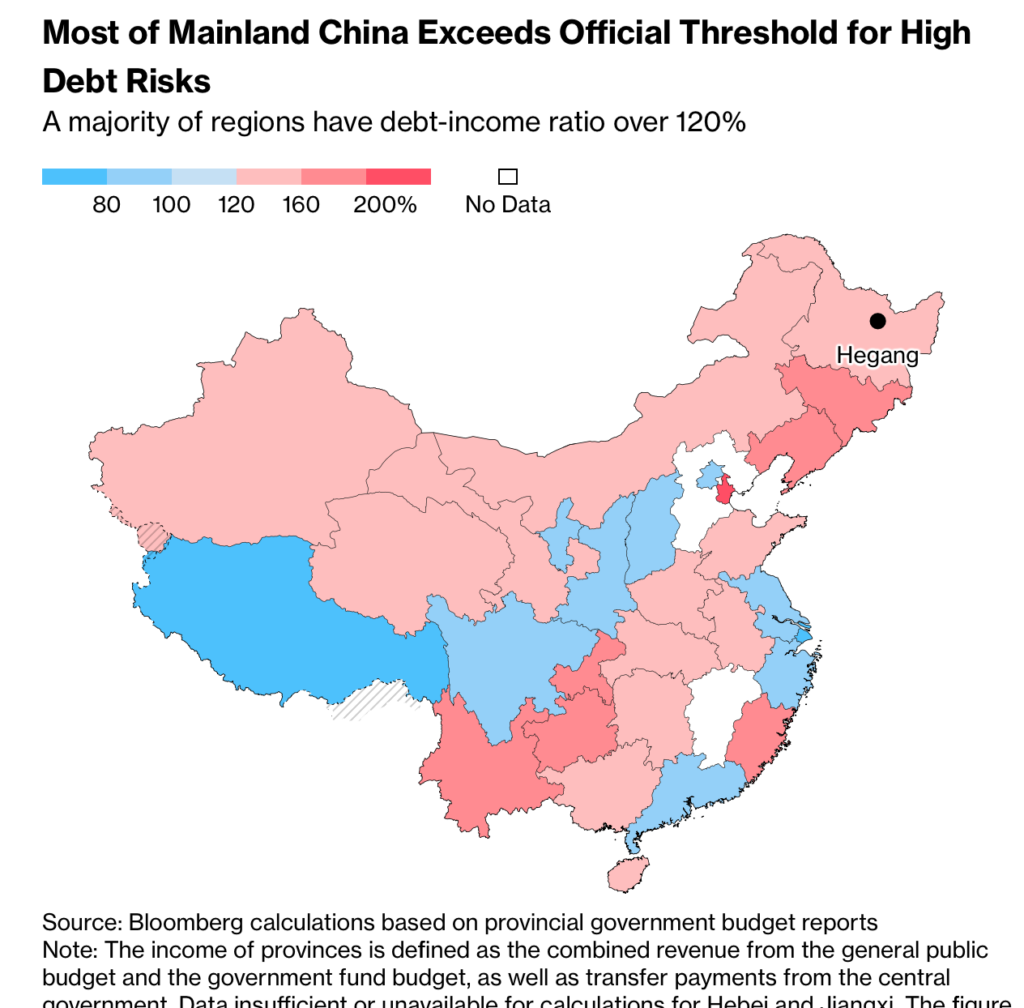
8. Gallup Poll of Americans on Best Long-Term Investments
A Wealth of Common Sense Ben Carlson Each year Gallup performs a survey that asks a group of Americans what the best long-term investment is among the following options:
- Stocks
- Bonds
- Cash
- Gold
- Real estate
These are the latest results:

Great Full Read by Ben
https://awealthofcommonsense.com/2023/05/whats-the-best-long-term-investment/
9. College Seniors Want Flexible Hours.
Food for Thought: What do college seniors see as the most important benefit in their first job?
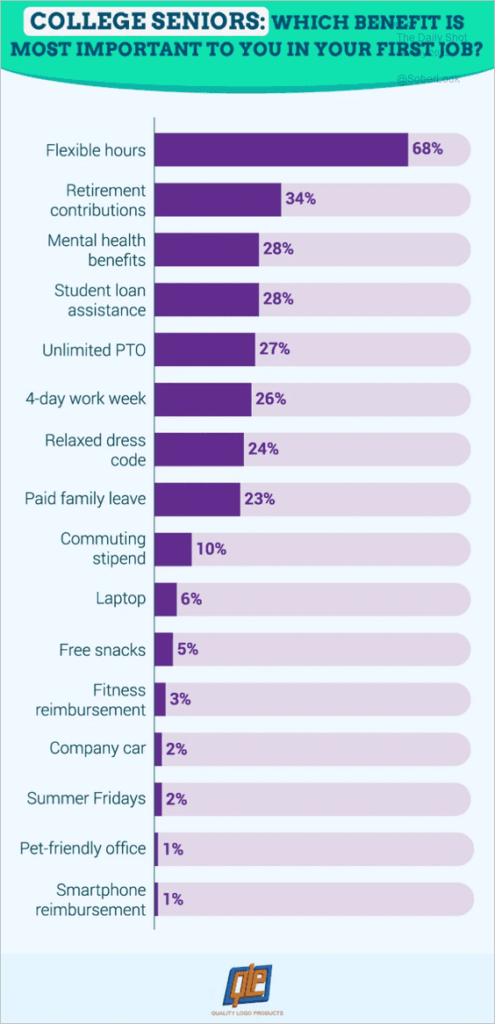
Source: Quality Logo Products
10. 3 Ways to Overcome Anxiety in Decision-Making
Want to make choices easier? Facing too many options creates unnecessary stress. Kevin Bennett Ph.D.
KEY POINTS
- People should give themselves and others limited options when making decisions.
- It might be less adventurous, but it helps to stick with what one knows and what has worked in the past.
- Avoid regret by not obsessing so much over a decision that could turn out wrong.
Expect a series of follow-up questions when you ask the paint specialist for a can of green at your favorite hardware store: “Is this for interior or exterior?” “What material is the wall surface?” and “What shade of green?” So many choices! There are light green, dark green, lime, emerald, and olive, just to name a few. Seems like good business to offer so many options, right?
In the world of decorating, this may be so, but not everything in life is better with more choices. Here are three ways to overcome the anxiety of choice overload.
1. Minimize the options.
You want the latest technology, but there are so many options. You want the most delicious plates on a menu, but there are at least 20 entrees that look good to you. What about a movie tonight? OK, but there are so many apps for streaming that it’s hard to know where to begin.
Titan of industry Henry Ford once boasted that the customer could have a car painted any color as long as it was black.* The automotive industry has changed quite a bit since, but this was standard in the 1920s. It seems that previous generations faced fewer consumer product choices across the board. Television came of age in the 1950s at a time when viewers had a choice of three or four stations. That’s it. Because so many products and services were localized at the time, consumers had regular access to just one or two newspapers and a couple of clothing, book, and grocery stores. Options were even more scarce back in the distant ancestral past.
What to do? If your family wants to go out to eat and cannot decide between the various combinations of cuisines and specific restaurants, you can give them a list of limited options from which to choose. Essentially, you want to clear a path for them so they can manage the mental computations necessary to decide. Try this: We all want to go out to eat tonight, so let’s pick between restaurants A, B, and C. It’s much easier to manage a discussion about the pros and cons of three eateries vs. 37.
Making a decision by yourself? The strategy remains the same for a solo choice. Find a way to reduce the choice to two or three randomly selected options. For example, if you are putting together a takeout order, promise yourself you will pick from the first two restaurants you see on a delivery app, or that appear at the top of a Google search.
This is a practical parenting tip as well. Lay out three outfits on the bed for your 5-year-old and ask them to pick one. They will enjoy the autonomy that comes with making a decision, and it is good for healthy development.
2. Stick with what you know.
Choice overload, in the extreme, leads to analysis paralysis. When the number of options available pushes up against our limited cognitive resources, something has to give. Either we make poor decisions because we cannot possibly process all the new information adequately, we give up due to fatigue and decide blindly, or we simply feel overwhelmed and incapable of deciding. A time traveler stepping into today’s world from the distant past might be paralyzed by the dizzying array of sizes, colors, and models of everything. A world filled with so many choices has given rise to the concept of analysis paralysis.
Analysis paralysis refers to the state of overthinking or excessive deliberation that hinders decision-making. It occurs when individuals become so overwhelmed by the abundance of options or information that they struggle to make a choice or take action. Don’t be afraid to put the decision on pause and sleep on it. When you resume after a good night’s sleep, let your refreshed brain guide you to a more confident decision.
What to do? Stick with what you know. Good habits are shaped when dopamine and other reward-associated neurotransmitters in the brain see the activity as a positive one. The net effect, psychologically, is that the consistent choices you make over time are viewed as good ones by you. In other words, keep doing what you are doing because it’s working. In your food app, browse through the favorites section to help make your picks. Of course, there is an argument to be made for trying new things and stepping out of your comfort zone, etc., but we’ll save that topic for another day.
3. Don’t obsess over the wrong decision.
Regret is an unpleasant emotional state that features sadness and disappointment about negative outcomes or opportunity loss. Sometimes we feel regret after a voluntary action (an “act of commission” ): for example, breaking up with your boyfriend only to look back sadly on your choices years later. An “act of omission,” on the other hand, produces regret because we missed a chance when we should have taken it (e.g., talking to an attractive person, going skydiving, taking an extra week of vacation, etc.).
Intriguing laboratory data reveals that among bad outcomes, people regret acts of commission more than acts of omission. Most of us would feel distressed over losing out on a lottery jackpot after we had changed our numbers from the winning combination to some other pick. This would sting more than just losing on our first pick of numbers.
What to do? Don’t waver. Stick with your first choice, and once you’ve decided, commit to your decision. Do you really want to spend all that time and effort reanalyzing and going back and forth?
* Henry Ford’s statement, “Any customer can have a car painted any color that he wants so long as it is black,” was made at a sales meeting. In his book My Life and Work (1922), he followed up with an observation, “I cannot say that anyone agreed with me.”
Copyright © Kevin Bennett, Ph.D. 2023